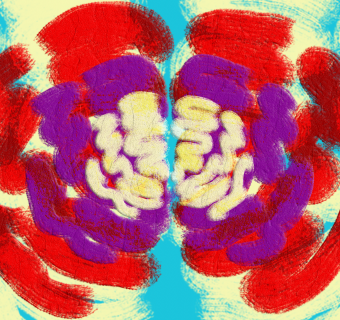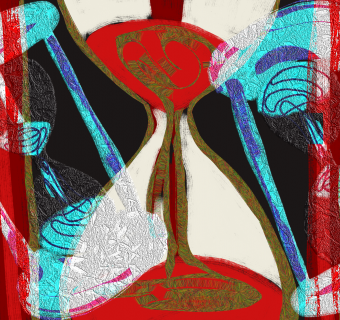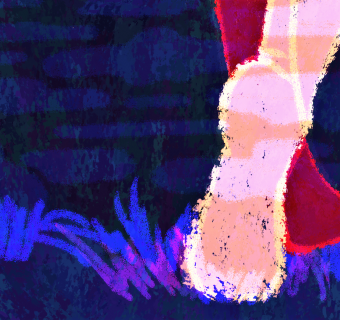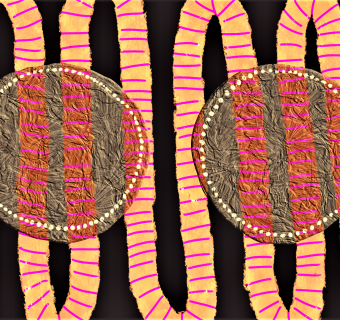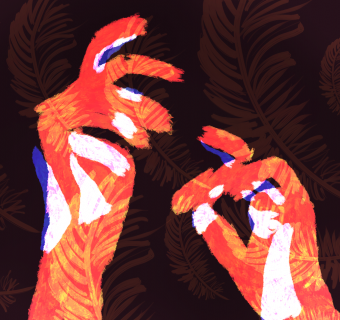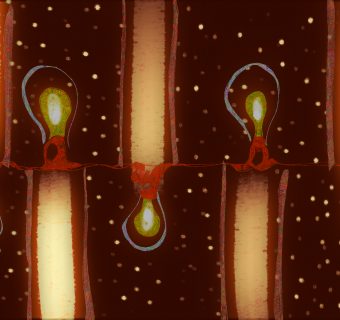A word from the photographer, Kendall Siewert
This project began because I believe in the power of people’s stories. When I first photographed women and their experiences with their bodies, I received an overwhelming response to do the same with men. I expected to find lots of differences between the projects. But in reality - at the heart of each person I meet and photograph - the same sentiments are there. Each person has insecurities and triumphs when it comes to their own bodies. Each story is a journey on its own. I am so immensely grateful to these men for sharing their stories with me, and I hope they touch you in the same way they touched me.
JOSH
 Growing up, you’re told men and women need to appear a certain way. Women are supposed to be as thin as a rail with perky breasts and voluptuous curves. Men are supposed to be tall, muscular and big. As a child, I was always thin and very active, but never very muscular. By the age of 12 I started growing. I gained height, and then weight. My peers were behind me, so for a time they were jealous. I always found it to be peculiar to be jealous about another’s insecurities. My pants never fit, hair sprouted on my chest and stomach, and acne developed on my face as well as my chest shoulders and back. The acne was cystic and would not go away. I have been on antibiotics to treat it as well as various creams for 8 years now. It’s gotten better in college. However, I’ve gained weight within the past 3 years, 30 pounds to be precise. Coming to UVA and seeing how fit everyone is, there is this expectation of how you’re supposed to look. I feel very insecure due to the acne, weight and hair on my body. I go to the gym to try to be healthy and I have gained some progress. Last semester I lost 10 pounds and felt great. However, I gained it back over winter break and put on another 5 pounds this semester. I know some of it is muscle, but I still feel like I need to lose more weight. I don’t want to be one of those people that spends all of their time in the gym, nor worry over every calorie I put in my body. How do I feel good about how I look in a culture where beauty is all based on muscle and thinness without compromising who I am as a person? I am sure I am not the only person at UVA that feels this way and hope through this project that dialogue can be created between people of all body types to see how they feel as well.
Growing up, you’re told men and women need to appear a certain way. Women are supposed to be as thin as a rail with perky breasts and voluptuous curves. Men are supposed to be tall, muscular and big. As a child, I was always thin and very active, but never very muscular. By the age of 12 I started growing. I gained height, and then weight. My peers were behind me, so for a time they were jealous. I always found it to be peculiar to be jealous about another’s insecurities. My pants never fit, hair sprouted on my chest and stomach, and acne developed on my face as well as my chest shoulders and back. The acne was cystic and would not go away. I have been on antibiotics to treat it as well as various creams for 8 years now. It’s gotten better in college. However, I’ve gained weight within the past 3 years, 30 pounds to be precise. Coming to UVA and seeing how fit everyone is, there is this expectation of how you’re supposed to look. I feel very insecure due to the acne, weight and hair on my body. I go to the gym to try to be healthy and I have gained some progress. Last semester I lost 10 pounds and felt great. However, I gained it back over winter break and put on another 5 pounds this semester. I know some of it is muscle, but I still feel like I need to lose more weight. I don’t want to be one of those people that spends all of their time in the gym, nor worry over every calorie I put in my body. How do I feel good about how I look in a culture where beauty is all based on muscle and thinness without compromising who I am as a person? I am sure I am not the only person at UVA that feels this way and hope through this project that dialogue can be created between people of all body types to see how they feel as well.
TRISTON

Showing my body is something that’s fairly new to me. When I was younger, I believed that I was chubby; maybe I was a little chubby, but that’s alright. Myreaction to this belief was far from alright: I counted calories as if my life depended on it. My body became fragile and my immune system  suffered; I was sleepy all the time and I was isolated both by my choice and by that of my peers. I started self-harming towards the end of middle school. During freshman year, I told one of the sophomore guys
suffered; I was sleepy all the time and I was isolated both by my choice and by that of my peers. I started self-harming towards the end of middle school. During freshman year, I told one of the sophomore guys
that he was cute. Next thing I knew, the whole school knew I was gay—except, I’m not gay. I tried to explain the lack of importance gender had on whom I liked, but nobody really heard me. The next three years were a whirlwind of excitement, lessons, and the angst that every high school student knows. I was lucky that so many of my peers were supportive; I never had any troubles because of my sexuality. Towards the end of high school, I started to notice old habits popping up and I began my second dealing with self- harm. I had no idea what was wrong with me, I just didn’t feel right. The only time I felt good was when I was with my best friend or my mom, bopping queer and female rappers. When I figured out I was genderqueer, they were the first people I told. My mom cried, and smiled, and told me she loved me before thanking me for trusting her enough to share this part of my life with her. I think that’s why I’m the most likely not to give a fuck what people think: my mom taught me that I don’t have to.
CAL
There’s a scene in the film Jimmy Neutron: Boy Genius where a little kid eats too much cotton candy. “We were going to see who could eat the most cotton candy,” he moans. Just before breaking down completely, he chokes out a lamentful, “and I won!” The camera zooms out to reveal his almost spherical, computer-generated body, full to bursting with cotton candy.
 Jimmy Neutron: Boy Genius was released in theaters in 2001. I saw it with my parents and sister soon after it opened. So here is the scene: I’m a five-year-old, sitting in a blood-red movie theater sharing a package of Skittles with my sister. I’m having a grand time, enjoying my G-rated entertainment to its full potential when the camera cuts to the cotton candy kid. The screen dissolves into loose shapes and gooey colors as my vision gets wet and salty and I can’t hear anything but the polite laughter of the movie patrons as they harmlessly fat-shame this little boy. Suddenly, I feel the syrupy residue of the Skittles on my fingertips and realize that I’m a pig and a fatso and disgusting and that I’m the cotton candy kid and that I’m the one they’re all laughing at. That was 15 years ago and it was still the first thing that jumped to mind when I sat down to write this.
Jimmy Neutron: Boy Genius was released in theaters in 2001. I saw it with my parents and sister soon after it opened. So here is the scene: I’m a five-year-old, sitting in a blood-red movie theater sharing a package of Skittles with my sister. I’m having a grand time, enjoying my G-rated entertainment to its full potential when the camera cuts to the cotton candy kid. The screen dissolves into loose shapes and gooey colors as my vision gets wet and salty and I can’t hear anything but the polite laughter of the movie patrons as they harmlessly fat-shame this little boy. Suddenly, I feel the syrupy residue of the Skittles on my fingertips and realize that I’m a pig and a fatso and disgusting and that I’m the cotton candy kid and that I’m the one they’re all laughing at. That was 15 years ago and it was still the first thing that jumped to mind when I sat down to write this.
In kindergarten, I started wearing a wetsuit whenever I went to the pool or the beach. By the third grade I was doing sit ups every day in the basement. In the fourth grade I became a vegetarian for “environmental reasons.” In eighth grade I renounced vegetarianism for “health reasons.” Now, I’m in my first year of college and I still feel panicky when my girlfriend hugs me around the waist. All this despite the fact that my whole life people have done nothing but tell me how cut I am, how healthily I eat and how diligently I exercise. And yet, at the end of the day I still lie in bed, staring at my stomach, wishing I weren’t the cotton candy kid.
The trouble is, folks, I see myself through a twisted lens. I have tried to correct the problem by changing the view I look at. But that doesn’t work; everything is warped through a warped lens.
It’s time to accept that my perspective is trash and embrace the fact that I'm somewhat insane. I'm nuts and I'm damn proud of it. After all, how can I not be crazy? I’ve never even fucking tried cotton candy.
MICAH

Recently, I’ve begun to embrace the fluidity of gender expression. In the past year, I’ve been misgendered consistently due to my hair and feminine characteristics. I used to hate that I had a small frame and more stereotypically ‘girly’ mannerisms; but now I think, there’s a certain strength I have from being outside normalized expressions of gender. My hair greatly influences my personal expressions— whether I am feeling more feminine or masculine. I think these photos help represent the eye of society through which we are viewed as well as a sense of the privileged creativity I’ve found within this space of policed gender expectations.
RJ
 The first time I heard the word ‘gender dysphoria’, I was already 20 years old. Before that, I didn’t have the language to describe to others or myself how I felt about my own body, how I felt like my form wasn’t masculine enough, and how only time I felt comfortable was when no one was looking at me and drawing incorrect conclusions about my gender. It’s taken years to come to terms with being transgender, and occasionally it’s still hard to look at myself or let myself be seen by others. But I’ve come to realize that this body is what I have to work with, and that when I stop worrying about how other people see me and let myself feel at home in my own skin, it’s freeing. I started practicing Muay Thai kickboxing because physical activity is sometimes the only thing that can help me feel grounded in my body when the gender dysphoria gets real bad. Because when I’m fully present, it no longer matters how people perceive me. I’m just me. Some days I still have to struggle and fight to find that peace and self- acceptance, and it’s hard, but it’s absolutely worth it.
The first time I heard the word ‘gender dysphoria’, I was already 20 years old. Before that, I didn’t have the language to describe to others or myself how I felt about my own body, how I felt like my form wasn’t masculine enough, and how only time I felt comfortable was when no one was looking at me and drawing incorrect conclusions about my gender. It’s taken years to come to terms with being transgender, and occasionally it’s still hard to look at myself or let myself be seen by others. But I’ve come to realize that this body is what I have to work with, and that when I stop worrying about how other people see me and let myself feel at home in my own skin, it’s freeing. I started practicing Muay Thai kickboxing because physical activity is sometimes the only thing that can help me feel grounded in my body when the gender dysphoria gets real bad. Because when I’m fully present, it no longer matters how people perceive me. I’m just me. Some days I still have to struggle and fight to find that peace and self- acceptance, and it’s hard, but it’s absolutely worth it.
JOE


All my life, I’ve felt pressure to change my body. Growing up, I was the chubby kid, self conscious and uneasy about how others saw me. Fast forward to today where I’m short and thin. Instead of feeling pressure to lose weight, now there’s a constant push to be more muscular, stronger, and taller. I’ve learned that no matter what I look like, there will always be this conflict. A pulling in all directions to embody someone else’s definition of a man. Trying to satisfy that definition is a true Sisyphean task and results in a cycle of tension, resistance, and disappointment. Instead, I’ve learned to accept what I am. Only by letting go of and looking beyond all the negativity and urges to change can I find peace with what I look like at this very moment. And in the end, it’s only my eyes that matter.
CONNOR
 I really didn’t think about having a body until I was twelve-years-old. This was also the time that I began to realize that I was gay. I think the two are related. It was around this time that I began to perceive my body as fat and undesirable, not for myself or my family, but to boys around me that I desired. I spent so much energy thinking about what people thought about my body that I would restrict food and worry about my clothes. I lost a huge amount of weight at the start of high school, trying desperately to make my young body match those of the more mature seniors that I was attracted to. My mom was concerned and took me to a doctor who told me I was thin but not unhealthy yet; news I took to mean I could be skinnier. A male teacher told me I had a “track body” so I joined track, forming my body to match the image I was giving. For so long I let what I perceived of other men’s thoughts to dictate what my body should look like. Even coming into college, I felt my thin body would make me more desirable for the slew of new queer boys I would meet. It was finally my family’s support and changing perspectives on food from spending a semester in Sweden that allowed me to start being healthy again. I’m now at a weight that is healthy and am confident in who I am. That my desirability is about more than simply my body, which is beautiful. I wanted to create an image where I was able to represent my feminine character and simultaneously glare back the patriarchal male gaze that has shaped so much of my development.”
I really didn’t think about having a body until I was twelve-years-old. This was also the time that I began to realize that I was gay. I think the two are related. It was around this time that I began to perceive my body as fat and undesirable, not for myself or my family, but to boys around me that I desired. I spent so much energy thinking about what people thought about my body that I would restrict food and worry about my clothes. I lost a huge amount of weight at the start of high school, trying desperately to make my young body match those of the more mature seniors that I was attracted to. My mom was concerned and took me to a doctor who told me I was thin but not unhealthy yet; news I took to mean I could be skinnier. A male teacher told me I had a “track body” so I joined track, forming my body to match the image I was giving. For so long I let what I perceived of other men’s thoughts to dictate what my body should look like. Even coming into college, I felt my thin body would make me more desirable for the slew of new queer boys I would meet. It was finally my family’s support and changing perspectives on food from spending a semester in Sweden that allowed me to start being healthy again. I’m now at a weight that is healthy and am confident in who I am. That my desirability is about more than simply my body, which is beautiful. I wanted to create an image where I was able to represent my feminine character and simultaneously glare back the patriarchal male gaze that has shaped so much of my development.”
LUKE
 It was hard for me coming to college knowing that I wouldn’t be playing any sports like I did in high school. As I noticed myself spending more and more time in the library and working on projects, I realized that my exercise routine withered away, and I could feel myself getting more and more “out of shape.” I had to reconcile the fact that my best athletic days were behind me; I would never be as good of a basketball or football player because I had committed to being the best student possible. While I definitely love studying interesting things, I somehow felt insufficient. I wanted to have a body that I could love—one that was fast and strong—but I was stuck with a “one-workout-a -week” body. I also became self conscious of skin discoloration on my back when I was in high school. When I got to college, I was living in a hall with a lot of different guys, and I didn’t know if they were judging me or not. The worst part about having a blemish or something on your back is you can’t micromanage it like something on your face. Medicated shampoo didn’t work, so I’m still struggling with it. It’s been difficult learning to love my body even though I know it’s not as able as it could be, but I’m thankful that I can reflect on the fun times I did have playing sports and thank God that I’m still healthy.
It was hard for me coming to college knowing that I wouldn’t be playing any sports like I did in high school. As I noticed myself spending more and more time in the library and working on projects, I realized that my exercise routine withered away, and I could feel myself getting more and more “out of shape.” I had to reconcile the fact that my best athletic days were behind me; I would never be as good of a basketball or football player because I had committed to being the best student possible. While I definitely love studying interesting things, I somehow felt insufficient. I wanted to have a body that I could love—one that was fast and strong—but I was stuck with a “one-workout-a -week” body. I also became self conscious of skin discoloration on my back when I was in high school. When I got to college, I was living in a hall with a lot of different guys, and I didn’t know if they were judging me or not. The worst part about having a blemish or something on your back is you can’t micromanage it like something on your face. Medicated shampoo didn’t work, so I’m still struggling with it. It’s been difficult learning to love my body even though I know it’s not as able as it could be, but I’m thankful that I can reflect on the fun times I did have playing sports and thank God that I’m still healthy.
THOMAS
 Growing up with an older sister, I was very aware of the female struggle with body image. Even as I struggled with the same issues my sister had experienced, I do not believe I grasped that body standards affected males outside myself. I began working out to overcome my anxiety and pursue the confidence I assumed could be derived from the classic male figure, which for me is represented by Michelangelo’s David.
Growing up with an older sister, I was very aware of the female struggle with body image. Even as I struggled with the same issues my sister had experienced, I do not believe I grasped that body standards affected males outside myself. I began working out to overcome my anxiety and pursue the confidence I assumed could be derived from the classic male figure, which for me is represented by Michelangelo’s David.
Today I would say I’m confident in my body, but not satisfied. The problem with working out to overcome body image issues is that it makes you reliant on your appearance rather than inspiring true self-confidence. In the gym, on the court, wherever, there is always someone bigger and stronger, so the comparisons and insecurity never go away. Though I do not get teased for taking exercise too seriously nearly as much as I did for being “too skinny,” I know all the latent anxieties and insecurities would come rushing back if I were to stop exercising. I’m only just learning that working out in pursuit of the ideal physique, whatever form that might take, is a Band-Aid rather than a solution, and it is one I’d be scared to rip off.


